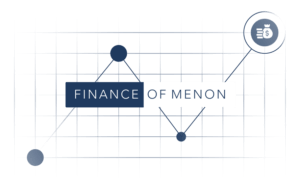You don’t need a six-figure salary to start planning your financial future. In fact, financial planning for early-career professionals is one of the smartest moves you can make.
The earlier you begin, the more powerful your money becomes—because your greatest asset isn’t your salary. It’s your time horizon.
This article explores how early planning helps you build the right habits, use tax-advantaged accounts, manage debt strategically, and reduce stress through financial clarity.
Build Smart Money Habits Early
At the start of your career, financial planning is about creating systems, not just cutting expenses. You want behaviors that stick:
- Spend less than you earn. This builds surplus for investing and savings.
- Track cash flow. Apps like YNAB or simple spreadsheets help you stay aware.
- Automate savings. Send money to a high-yield savings account or a Roth IRA.
Small, consistent actions taken early generate compounding discipline and freedom over time.
Start Investing—Even Small Amounts Matter
A key part of financial planning for early-career professionals is simply getting started. Don’t overthink it.
Here’s where to begin:
- 401(k): Contribute enough to receive your company match—it’s essentially free money.
- Roth IRA: Offers tax-free growth. Ideal for professionals in lower tax brackets.
- HSA: If eligible, this Health Savings Account provides triple tax benefits.
Use platforms like Fidelity or Vanguard to open low-cost accounts.
Remember: time in the market beats timing the market.
Planning with Student Loans and Other Debt
Many early-career professionals hesitate to plan while in debt. But debt should be part of your integrated financial strategy—not a reason to delay planning.
Here’s how to make it work:
- Pay off high-interest debt first, while still saving for retirement.
- Explore student loan forgiveness through Federal Student Aid.
- Check your employer’s benefits—some offer loan repayment assistance.
Debt is a planning variable—not a roadblock.
Build Tax-Efficient Habits Now
Financial planning for early-career professionals includes developing tax awareness. Even modest income offers strategic opportunities:
- Use Roth contributions while in a low tax bracket.
- Claim deductions, such as student loan interest or the Saver’s Credit.
- Understand marginal tax brackets—only income above a certain threshold is taxed at the higher rate.
These habits reduce your lifetime tax burden and maximize your after-tax wealth.
Set Clear Financial Goals—and Adjust Often
Financial planning is not a one-time activity. It should evolve with your life and career.
Start with achievable goals:
- Build a 3–6 month emergency fund
- Save 15–20% of your annual income
- Eliminate high-interest debt
When your situation changes—new job, move, or salary bump—update your financial plan. Planning isn’t about perfection. It’s about direction.
Peace of Mind: The Invisible Dividend
The most underrated benefit of starting early is clarity and control.
Good planning helps you:
- Avoid lifestyle creep
- Make confident career and life decisions
- Feel less anxious about your finances
This sense of control compounds, just like your investments. It unlocks options: to explore, pause, or pivot—without panic.
Explore More
👉 Want to explore how to build your first financial roadmap? Read our Beginner’s Guide to Investment Planning
Financial planning for early-career professionals isn’t about getting it all right. It’s about being proactive. Start simple. Build good habits. Invest consistently. Reduce decision fatigue.
Your future self won’t remember every financial detail—but it will thank you for having a plan.
Finomenon Investments is a Registered Investment Advisor in Washington. As Fee-Only Advisors, we are not affiliated with any Broker Dealer (BD), Bank, or Family of Funds and serve as fiduciaries to corporate managers and executives. Disclaimer: Nothing here should be considered investment advice. All investments carry risks, including possible loss of principal and fluctuation in value. Finomenon Investments LLC cannot guarantee future financial results.






